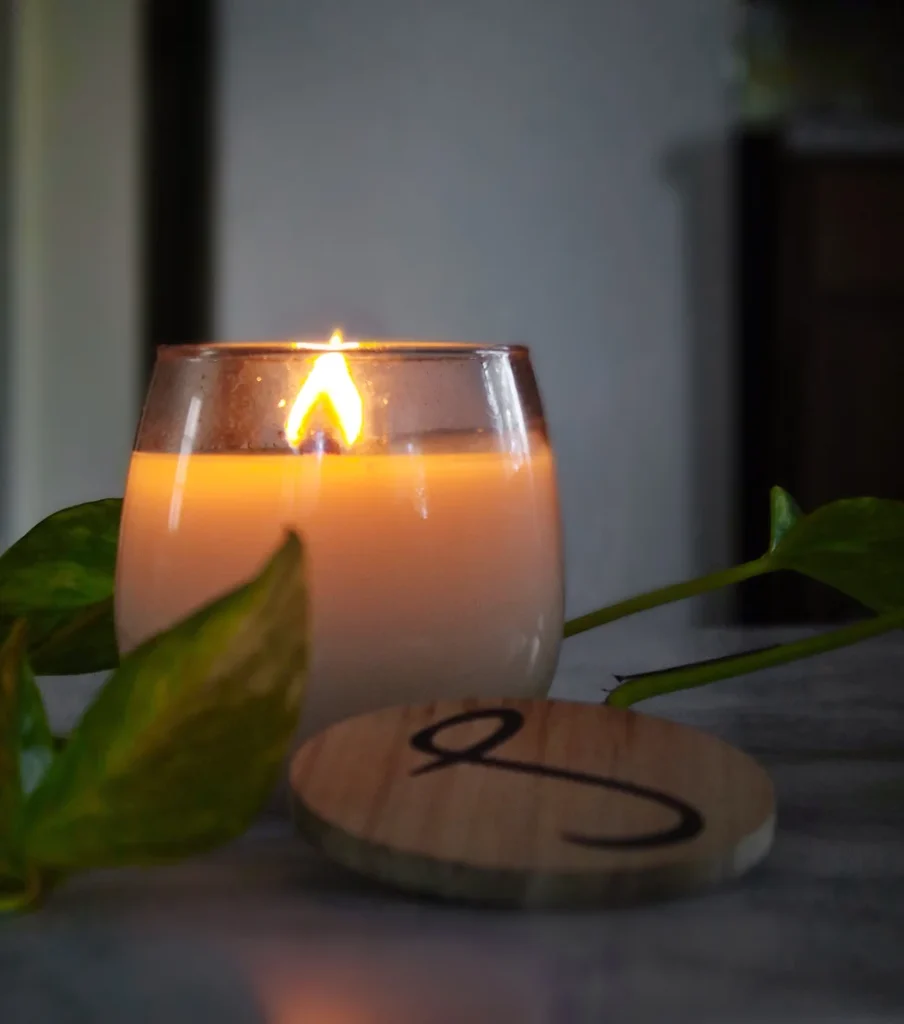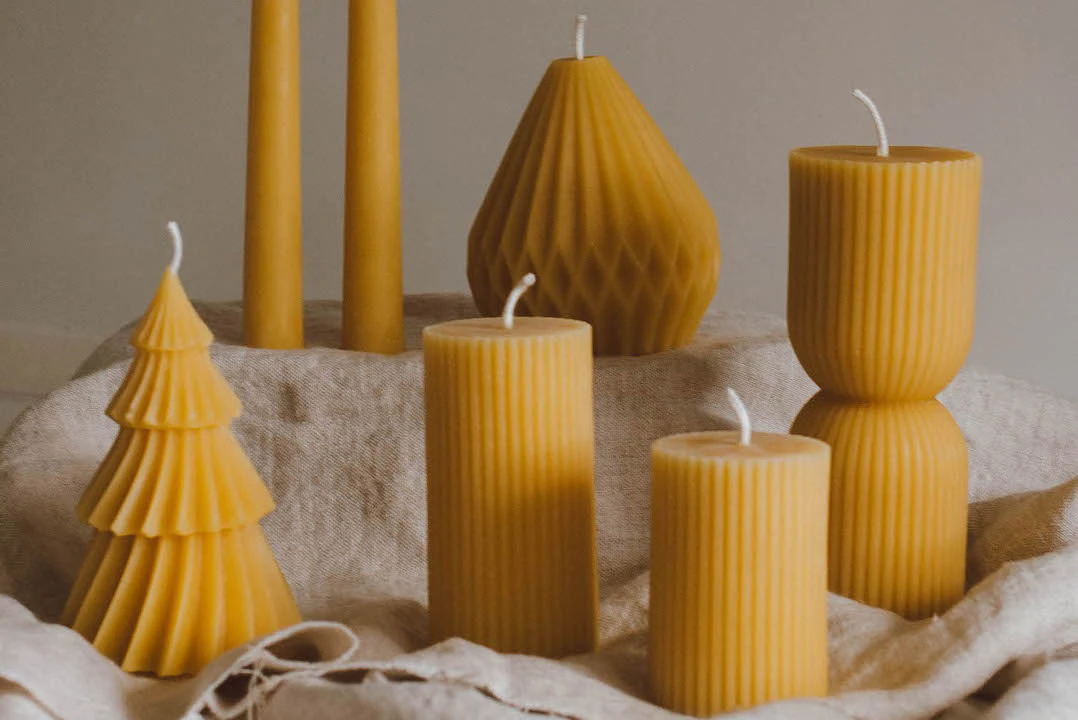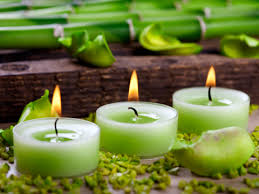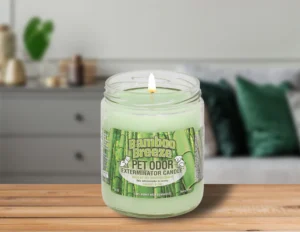Candles have long been cherished for their ability to create ambiance and evoke a sense of relaxation. However, traditional candles often contain harmful ingredients that can pose risks to our health and the environment. In this guide, we’ll explore non-toxic alternatives to traditional candles, highlighting their benefits, types, and how to use them safely. Whether you’re concerned about indoor air quality, the health of your loved ones, or the impact on the planet, non-toxic candle alternatives offer a safe and sustainable solution.
I. Risks of Traditional Candles

Harmful Ingredients
Traditional candles often contain paraffin wax, synthetic fragrances, and lead wicks, all of which release toxins when burned. These toxins can contribute to indoor air pollution and pose risks to respiratory health.
Environmental Impact
The production and disposal of traditional candles can also have a negative impact on the environment. From the extraction of petroleum for paraffin wax to the disposal of non-biodegradable materials, traditional candles contribute to pollution and waste.
II. Benefits of Non-Toxic Candle Alternatives
Health Benefits
Non-toxic candle alternatives offer health benefits by reducing exposure to harmful chemicals. Beeswax, soy wax, and coconut wax candles are made from natural ingredients and produce minimal soot and toxins when burned, promoting better indoor air quality.
Environmental Benefits
Non-toxic candle alternatives are often made from renewable and sustainable sources, such as beeswax, soybeans, and coconuts. These materials are biodegradable and have a lower environmental impact compared to petroleum-based paraffin wax.
Safe for Pets and Children
Many traditional candles contain ingredients that can be harmful to pets and children if ingested or inhaled. Non-toxic candle alternatives use natural ingredients that are safe for the whole family, providing peace of mind for pet owners and parents.
III. Types of Non-Toxic Candle Alternatives
Beeswax Candles
Beeswax candles are made from the wax produced by honeybees and have a natural honey scent. They burn cleanly and emit negative ions that can help purify the air.
Soy Candles
Soy candles are made from soybean wax, a renewable and biodegradable material. They burn longer and cleaner than paraffin candles and are available in a wide range of scents and styles.
Coconut Wax Candles
Coconut wax candles are made from the wax derived from coconut oil. They have a clean and slow-burning flame and can hold a high concentration of fragrance, resulting in a strong scent throw.
Essential Oil Diffusers
Essential oil diffusers offer an alternative to burning candles for scenting a room. They use ultrasonic or heat-based technology to disperse natural essential oils into the air, providing aromatherapy benefits without the risks associated with burning candles.
IV. How to Use Non-Toxic Candle Alternatives Safely
Placement and Ventilation
Place candles in well-ventilated areas away from drafts, curtains, and other flammable objects. This helps prevent indoor air pollution and reduces the risk of accidents.
Trimming Wicks
Keep candle wicks trimmed to 1/4 inch to prevent excessive smoking and soot buildup. Trimmed wicks also help candles burn evenly and last longer.
Extinguishing Candles
Use a candle snuffer or gently blow out candles to extinguish them, avoiding splattering hot wax. Never leave burning candles unattended, and ensure they are fully extinguished before leaving the room.
V. DIY Non-Toxic Candle Alternatives
Beeswax Candle Making
Learn how to make beeswax candles at home using simple ingredients and tools. Beeswax candle making is a fun and rewarding craft that allows you to create custom candles tailored to your preferences.
Soy Candle Making
Discover the art of soy candle making and experiment with different scents, colors, and container options. Soy candles are easy to make and can be customized to suit any occasion or décor style.
VI. Creative Ways to Enjoy Non-Toxic Candle Alternatives
Decorative Uses
Incorporate non-toxic candles into your home décor to create a cozy and inviting atmosphere. Display them on mantels, shelves, or tabletops to add warmth and ambiance to any room.
Aromatherapy
Explore the therapeutic benefits of essential oils by using a diffuser to scent your home naturally. Create custom blends to promote relaxation, improve concentration, or uplift your mood.
VII. Choosing Non-Toxic Candle Alternatives
Reading Labels
Look for candles labeled as non-toxic or made from natural ingredients such as beeswax, soy wax, or coconut wax. Avoid candles containing paraffin wax, synthetic fragrances, and lead wicks.
Trusted Brands
Research reputable brands that prioritize sustainability, transparency, and quality. Look for certifications such as organic, eco-friendly, or cruelty-free to ensure you’re purchasing non-toxic candle alternatives.
VIII. Conclusion
Non-toxic candle alternatives offer a safe, sustainable, and enjoyable way to enhance your home with fragrance and ambiance. By choosing candles made from natural ingredients and using them safely, you can create a healthier and more eco-friendly environment for yourself and your loved ones. Embrace the benefits of non-toxic candles and enjoy the peace of mind that comes with knowing you’re making a positive choice for your health and the planet.




